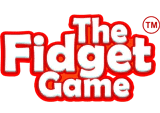The Reading Digraphs...
$29.99
$34.99
Save $5.00
Save $5.00
The Reading Digraphs Game makes learning fun while helping kids master essential reading skills, such as the most common digraphs and all six syllable types. Aligned with the Science of Reading, this game boosts comprehension, fluency, and leadership skills—keeping kids engaged and away from screens while preparing them for classroom success and beyond.
Key Features:
From Grade 2 to Grade 5
1-4 Players (or 1-on-1 Fun)
Quick & Easy Play (15 min)
Expected Results After 30 Days:
Masters Key Digraphs
Identifies 6 Syllable Types
Boosts Comprehension and Fluency
Builds Reading Confidence
Ultimate Reading Bundle
$44.99
$59.99
Save $15.00
Save $15.00
The Ultimate Reading Bundle is the perfect reading tool for Pre-K to Grade 3, featuring 220 Dolch sight words and Word Pop for CVC words and sound blending. Kids master reading skills through fun, interactive play, popping bubbles and rolling dice to learn high-frequency words and phonics. With colorful, durable cards and grade-specific storage boxes, this bundle makes learning enjoyable and builds a strong foundation in reading and comprehension.Skills Covered After 30 Days:
1. Master the most common words for their grade level2. Can read age-appropriate texts3. Increased fluency and comprehension skills4. Blend Sounds Like a Pro
The Vocabulary Game
$29.99
$34.99
Save $5.00
Save $5.00
There are several reasons why learning vocabulary words is important for kids. Here are five of them:
Communication skills: Vocabulary forms the foundation of communication. Building a wide range of vocabulary words allows kids to express themselves more effectively, both verbally and in writing.
Reading comprehension: Understanding vocabulary words is crucial for understanding written texts. A robust vocabulary facilitates reading comprehension and helps children interpret the meaning of the text accurately.
Academic success: Many subjects across the curriculum require a strong vocabulary base. Science, social studies, and literature often contain specialized terms that are essential to fully grasp the concepts being taught.
Confidence: Having an extensive vocabulary gives children more confidence when expressing themselves, participating in discussions, or presenting their ideas in front of others.
Critical thinking: Vocabulary is closely linked to critical thinking skills. Knowing a variety of words helps children analyze and evaluate information more effectively, enhancing their problem-solving abilities.
Developing a diverse vocabulary at a young age can benefit children in various aspects of their lives, including communication, academic performance, confidence, reading comprehension, and critical thinking skills.
Sight Words + The Re...
$48.99
$68.99
Save $20.00
Save $20.00
Skills Covered:
TFG Sight Words:
Master the most common words for their grade level
Can differentiate between words they can and cannot sound out
Can read age-appropriate texts
Increased fluency and comprehension skills
The Reading Digraphs Game:
Masters Key Digraphs
Identifies 6 Syllable Types
Boosts Comprehension and Fluency
Builds Reading Confidence
Making Learning Enjoyable

Top Reading Games From The Fidget Game Collection
How Reading Games Improve Comprehension Skills
How do reading games benefit 3rd graders?
What types of reading games are available for 3rd graders?
How can reading games help children with dyslexia?
Can reading games improve vocabulary and comprehension skills?
How do reading games enhance reading fluency?







































